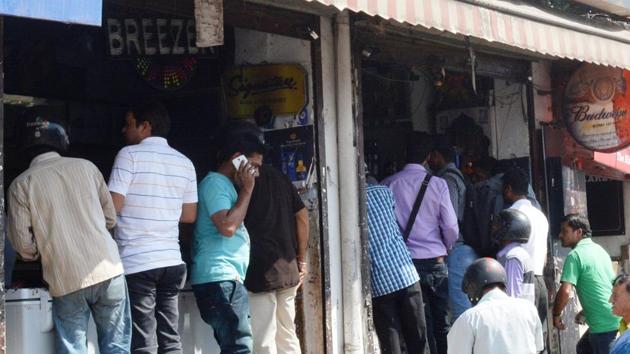Twitter in a tizzy over Uttarakhand liquor policy tweaks
The Uttarakhand BJP government’s changes in the liquor policy allowing relaxations in licence fees took Twitter by storm on Saturday, with chief minister TS Rawat and former Congress CM Harish Rawat coming face to face on the microblogging website
The Uttarakhand BJP government’s changes in the liquor policy allowing relaxations in licence fees took Twitter by storm on Saturday, with chief minister TS Rawat and former Congress CM Harish Rawat coming face to face on the microblogging website.

A cabinet meeting, chaired by the chief minister, on Friday night approved a major cut in licence fee for bars, restaurants and departmental stores that sell liquor.
The government has decided to allocate liquor licence to departmental stores with a turnover of over ₹50 lakh, and increased the fee from ₹2 lakh to ₹5 lakh.
The license fee for hotels and restro bars with 20 rooms each has been brought down to ₹3 lakh from ₹5 lakh, cabinet minister Madan Kaushik said. Bar licences will now be provided for three years, instead of the earlier norm of one year.
Harish Rawat posted his tweet around 9am: “CM TS Rawat says liquor would be sold in grocer’s shop. It’s a good decision where women groups will be selling liquor in every village and the people won’t have to go till the market. People voted for making the state ‘addiction free’ state and the government has made liquor handy for everyone.”
Till the filing of the report, 24 people retweeted the post and over 60 people liked it. Reacting to the post, Krishna Baldev Pandey tweeted, “It’s true. Liquor could help in getting a feel of Acche Din.”
Others expressed concern, saying women have been protesting over the years against the government’s move.
TS Rawat posted tweets, informing about the changes in the excise policy and requesting the media not to distort facts.
Around 10am, he tweeted, “Congress government brought FL-5M/DS policy in 2014 in which licence was given to people for selling foreign liquor brands in malls and departmental stores by submitting ₹2 lakh. Our government has stopped misuse of this policy.”
Another tweet said, “Under new guidelines, licence fee has been increased from ₹2 lakh to ₹5 lakh. The licence would be given to only to those when the turnover of that departmental store would be above ₹50 lakh so that only genuine stores could run the business.”
Reacting to Harish Rawat’s tweet that liquor would be sold in grocer’s shops, state BJP general secretary Naresh Bansal said, “Which departmental store has an annual turnover of ₹50 lakh? We demand an answer from Harish Rawat. The government wants to adopt a transparent policy which is not liked by Congress.”
Referring to tweaks in the liquor policy, Congress president Pritam Singh called the Trivendra Rawat government as a “confused and rollback government,” saying the decision contradicted what the chief minister had said a year ago.
“CM had said that the government doesn’t want to promote liquor trade in the state. But the cabinet decision suggests something else,” Singh said.
“Liquor policy has become a laughing stock. It is learnt the excise department has set a ₹2550 crore target for the current financial year after it failed to earn desired revenue last year,” the Congress president said.
Briefing reporters after the cabinet meeting, Kaushik said the “amendments” have been introduced in keeping with suggestions that came from the excise department and other quarters.
There will now be “single wine shops in an area of 20 km as the crow flies” instead of a cluster of four liquor outlets at one location as was the provision earlier, he said.
Restaurant and bar owners had been demanding a review of the high-licence fee in the new excise policy that came into effect on April 1.
“The earlier legal condition that the departmental stores would have to record a turnover of ₹5 crore has been revoked. Instead, the departmental store owners would now have to show a turnover of ₹50 lakh,” he said.
Similarly, restro bars, hotels and restaurants would have to record a sale of cooked food worth ₹10 lakh for renewal of their licences. “Earlier, all such establishments were supposed to record the sale of cooked food worth ₹12 lakh,” Kaushik said.
“Profit is not the motive behind the steps taken by the government. The move is aimed at checking the illegal sale of liquor.” (Inputs by Anupam Trivedi and Deep Joshi)






